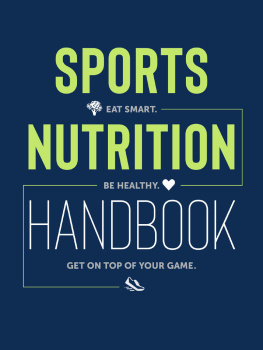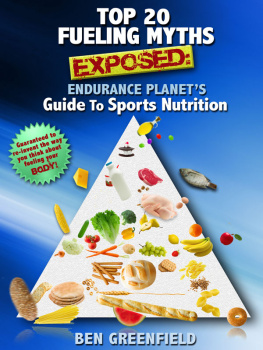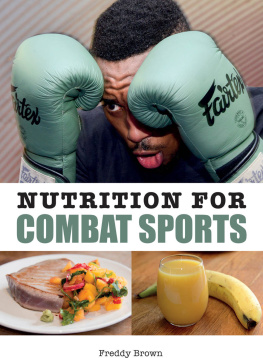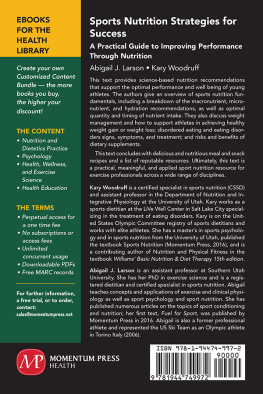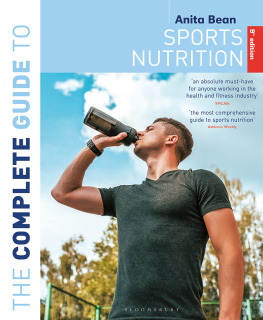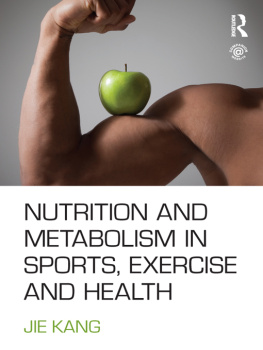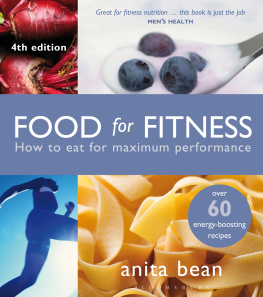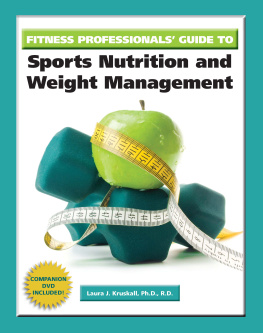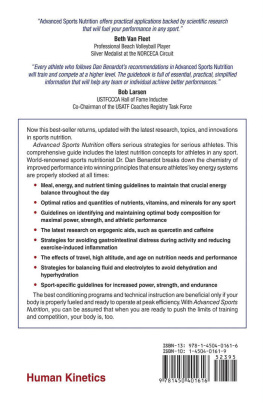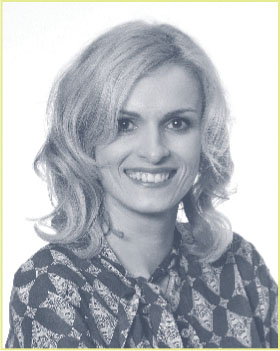
Justyna Mizera, MA, is a sports nutritionist who has developed more than one thousand diets for various sports. She has worked with 30 world-championship medalists and Olympians, but also everyday athletes and children. She has competed in fitness competitions and two half-marathons. The author of numerous scientific and popular science articles, Justyna serves as a nutrition expert for some of the largest television stations in Poland. She was also a dietitian in the television program Run Back the Clock. She teaches classes in the field of dietetics.

Krzysztof Mizera, PhD, is a sports physiologist and personal trainer. He works with leading athletes and amateurs in the fields of training, weight loss, motor skill improvement, performance testing, and nutrition. Since 2008, Krzysztof has served as a lecturer at various universities. A contributor to numerous scientific projects and conferences, his doctoral thesis examined nutrition and training in strength sports. He is the author of more than 120 publications and the bestseller Running Is Simple, and he founded the Olimpiakos Centre. He has run five half-marathons.
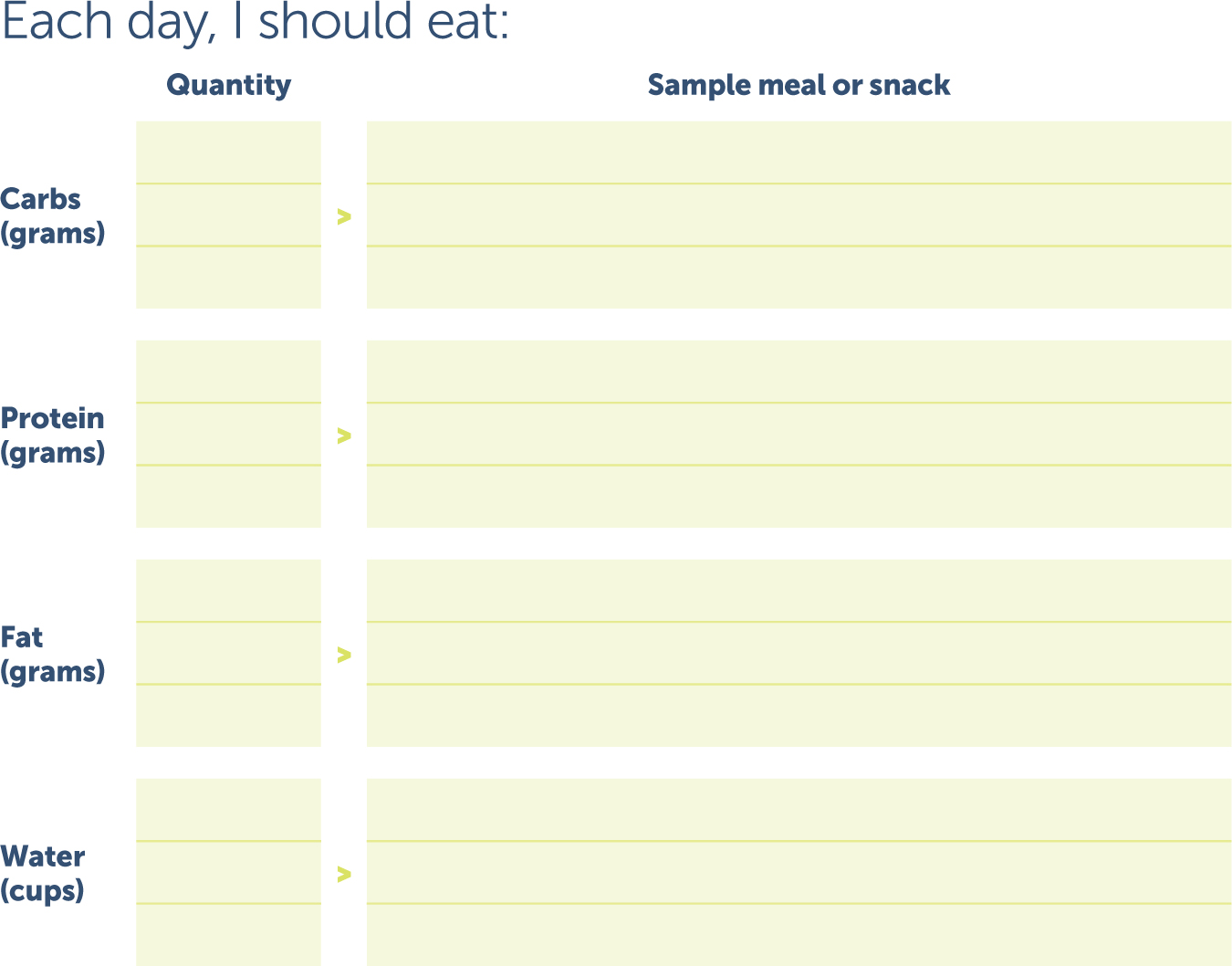
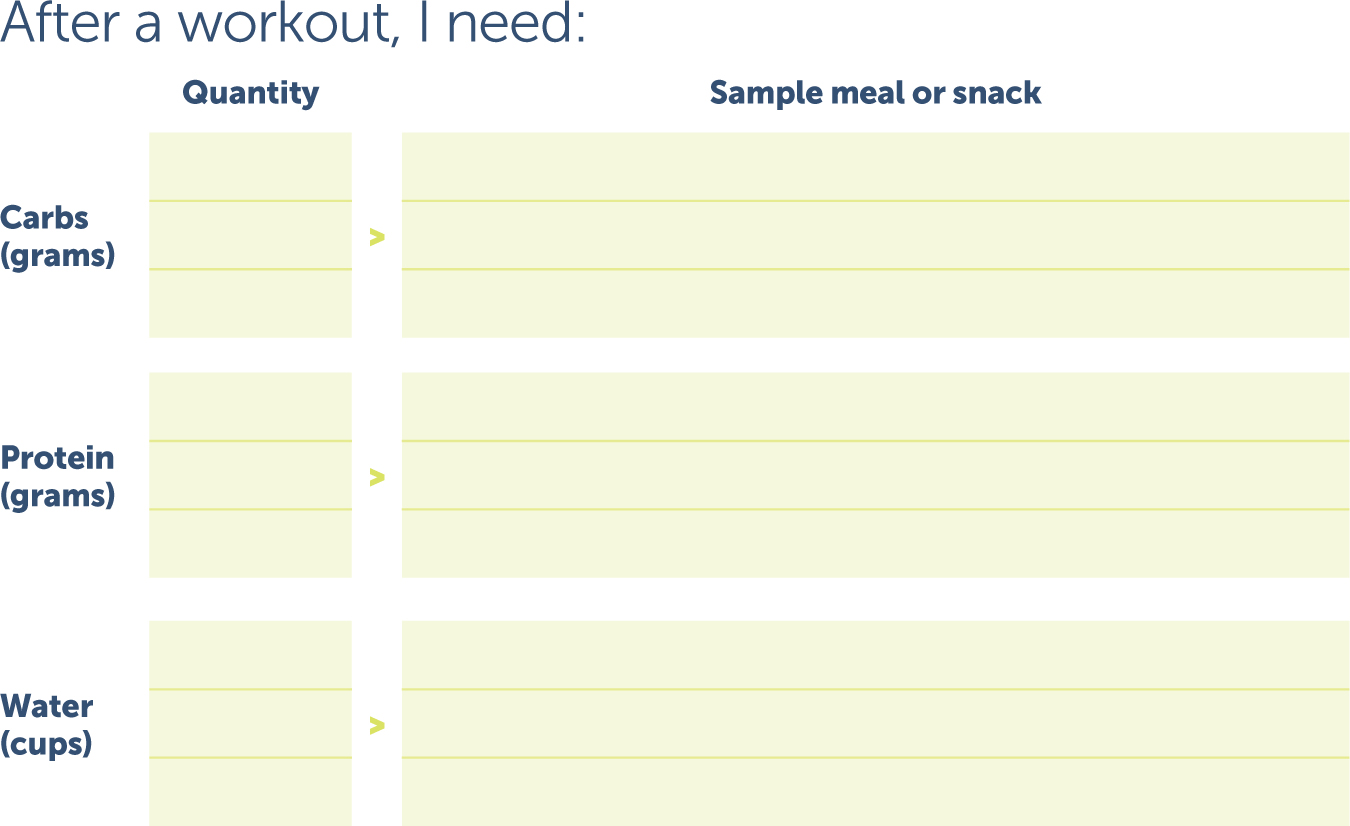
A note to readers: Double-tap on illustrations to enlarge them. After art is selected, you may expand or pinch your fingers to zoom in and out.
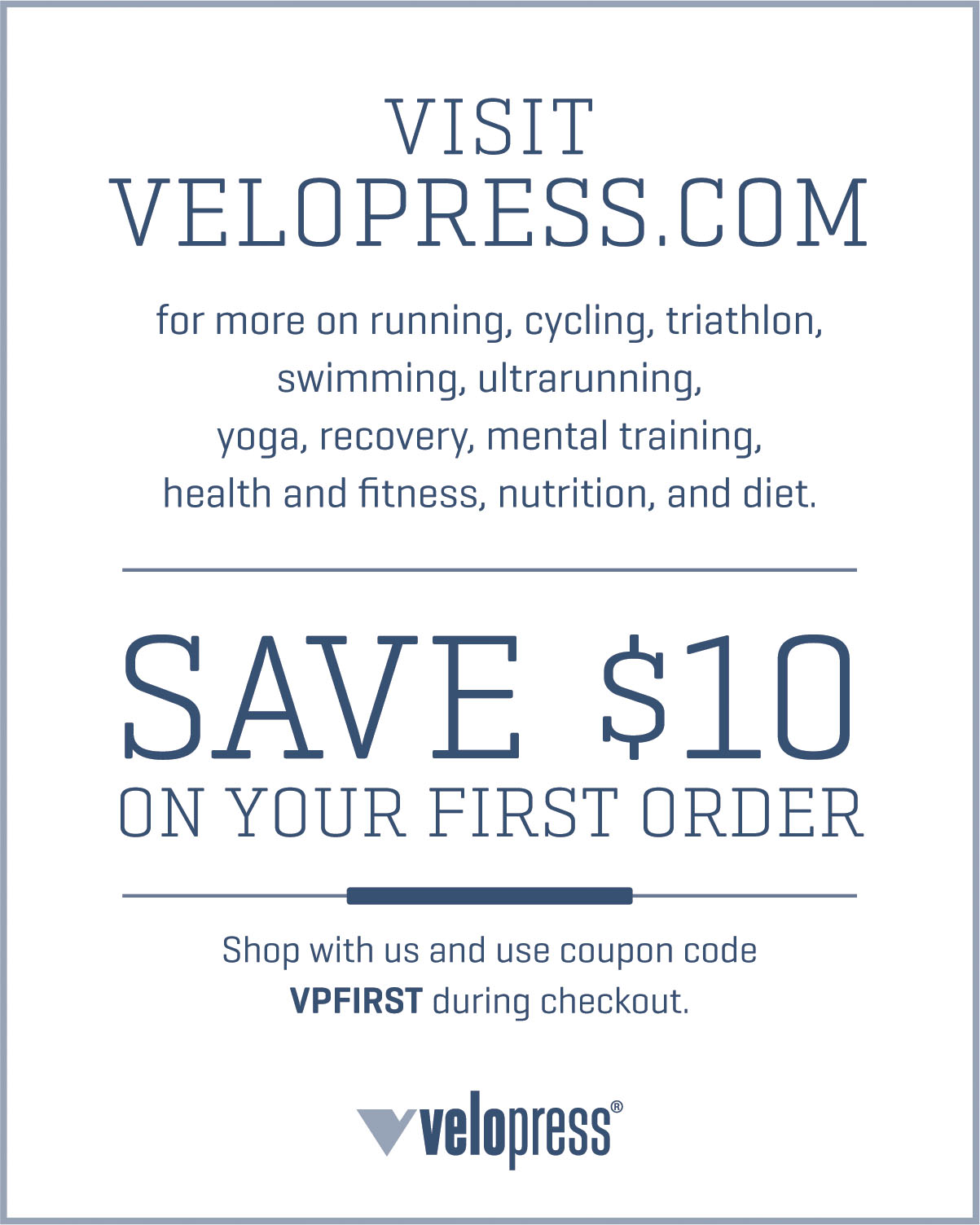
CHAPTER 1: POWERING THE ATHLETE
Farias LF Jr, Browne RAV, Frazo DT, et al. Effect of low-volume high-intensity interval exercise and continuous exercise on delayed-onset muscle soreness in untrained healthy males. J Strength Cond Res. 2017 Jun 12.
Fogelholm M. Exercise, substrate oxidation and energy balance. Int J Obesity 2006;30:1022.
Kenney W, Wilmore J, Costill D. Physiology of sport and exercise. 6th ed. Champaign (IL): Human Kinetics; 2015. p. 648
Lazzer S, Tringali G, Caccavale M, et al. Effects of high-intensity interval training on physical capacities and substrate oxidation rate in obese adolescents. J Endocrinol Invest. 2017;40(2):217226.
ONeill T, Skelton A. Indoor rowing training guide. Nottingham (England): Concept 2; 2001. p. 27.
Paoli A, Pacelli F, Bargossi AM, et al. Effects of three distinct protocols of fitness training on body composition, strength and blood lactate. J Sports Med Phys Fitness. 2010;50(1):4351.
CHAPTER 2: CARBOHYDRATES
Atkinson G, Taylor CE, Morgan N, et al. Pre-race dietary carbohydrate intake can independently influence sub-elite marathon running performance. Int J Sports Med. 2011;32(8):611617.
Brand-Miller J, Buyken AE. The glycemic index issue. Curr Opin Lipidol. 2012;23(1): 6267.
Berardi JM, Price TB, Noreen EE, et al. Postexercise muscle glycogen recovery enhanced with a carbohydrate-protein supplement. Med Sci Sports Exerc. 2006;38(6):11061113.
Burke LM, Cox GR, Culmmings NK, et al. Guidelines for daily carbohydrate intake: do athletes achieve them? Sports Med. 2001;31:267299.
Centeno V, de Barboza GD, Marchionatti A, et al. Molecular mechanisms triggered by low-calcium diets. Nutr Res Rev. 2009;22:163174.
Cermak NM, van Loon LJ. The use of carbohydrates during exercise as an ergogenic aid. Sports Med. 2013;43(11):11391155.
Chalcarz W, Merkel S, Mikoajczyk A, et al. Spoycie witamin i skadnikw mineralnych w przeddzie meczu, w dzie meczu i po meczu [Consumption of vitamins and minerals on the day before the match, on the match day, and after the match]. Bromat Chem Toksykol. 2008;41(3):681685. Polish.
Christensen DL, Van Hall G, Hambraeus L. Food and macronutrient intake of male adolescent Kalenjin runners in Kenya. Br J Nutr. 2002;88:711717.
Hawley JA, Leckey JJ. Carbohydrate dependence during prolonged, intense endurance exercise. Sports Med. 2015;45(Suppl 1):S5S12.
Huang S, Czech MP. The GLUT4 glucose transporter. Cell Metab. 2007;5(4):237252.
Knuiman P, Hopman MT, Mensink M, et al. Glycogen availability and skeletal muscle adaptations with endurance and resistance exercise. Nutr Metab (Lond). 2015;21(12):59.
Lambert CP, Frank LL, Evans WJ. Macronutrient considerations for the sport of bodybuilding. Sports Med. 2004;34(5):317327.
Lis D, Stellingwerff T, Kitic CM, et al. No effects of a short-term gluten-free diet on performance in nonceliac athletes. Med Sci Sports Exerc. 2015;47(12):25632570.
McCleave EL, Ferguson-Stegall L, Ding Z, et al. A low carbohydrate-protein supplement improves endurance performance in female athletes. J Strength Cond Res. 2011;25(4):879888.
Mikoajczak J, Bator E, Bronowska M, et al. Wartoci indeksw i adunkw glikemicznych wybranych patkw zboowych spoywanych z mlekiem [Values of glycemic indexes and glycemic loads of selected cereal flakes consumed with milk]. Rocz Pastw Zakl Hig. 2012;63(4):433440. Polish.
Okazaki K, Goto M, Nose H. Protein and carbohydrate supplementation increases aerobic and thermoregulatory capacities. J Physiol. 2009;587:55855590.
Panahi S, El Khoury D, Kubant R, et al. Mechanism of action of whole milk and its components on glycemic control in healthy young men. J Nutr Biochem. 2014;25(11):11241131.
Piehl-Aulin K, Soderlund K, Hultman E. Muscle glycogen resynthesis rate in humans after supplementation of drinks containing carbohydrates with low and high molecular masses. Eur J Appl Physiol. 2000;81:346351.
Raman A, Macdermid PW, Mndel T, et al. The effects of carbohydrate loading 48 hours before a simulated squash match. Int J Sport Nutr Exerc Metab. 2014;24(2):157165.
Wilson PB, Ingraham SJ, Lundstrom C, et al. Dietary tendencies as predictors of marathon time in novice marathoners. Int J Sport Nutr Exerc Metab. 2013;23(2):170177.
CHAPTER 3: PROTEIN
Bonjour JP. Dietary protein: an essential nutrient for bone health. J Am Coll Nutr. 2005;24(6):526S536S.
Campbell B, Kreider RB, Ziegenfuss T, et al. International Society of Sports Nutrition position stand: protein and exercise. J Int Soc Sports Nutr. 2007;26(4):8.
Cichosz G, Czeczot H. Kontrowersje wok biaek diety [Controversies around diet proteins]. Pol Merkur Lek. 2013;35(210): 397401. Polish.
Grillenberger M, Neumann CG, Murphy SP, et. al. Intake of micronutrients high in animal-source foods is associated with better growth in rural Kenyan school children. Brit J Nutr. 2006;95:379390.
Helms ER, Zinn C, Rowlands DS, et al. High-protein, low-fat, short-term diet results in less stress and fatigue than moderate-protein moderate-fat diet during weight loss in male weightlifters: a pilot study. Int J Sport Nutr Exerc Metab. 2015;25(2):163170.
Hoffman JR, Falvo MJ. Proteinwhich is best? J Sports Sci Med. 2004;3(3):118130.
Hulmi JJ, Lockwood CM, Stout JR. Effect of protein/essential amino acids and resistance training on skeletal muscle hypertrophy: a case for whey protein.

